Helping Hands Program
We are committed to providing immediate relief by distributing nutritious meals and essential supplies to those experiencing homelessness and elderly, offering safe shelter and housing options, and addressing the underlying causes of homelessness through comprehensive support services, including counseling, medical care and job placement assistance. We strive not only to meet the immediate needs of our neighbors in crisis but also to empower them on their journey toward self-sufficiency. Through the unwavering support of our dedicated volunteers, partnerships with local businesses, and generous donations from caring individuals. We are fostering a more compassionate and resilient community, where everyone has a chance to find hope and rebuild their lives.
Description: This is a community service aimed at providing essential support and assistance to individuals and families in need in the Texas cities of Houston, Austin, San Antonio and Dallas. This program is designed to address various social and economic challenges faced by vulnerable populations in these urban areas. We seek to foster a sense of community, reduce poverty and improve the overall well-being of residents in Texas cities. Providing a network of support for those facing hardship and promoting equity and inclusion.
Join our Helping Hands Program efforts. Every donation or hour volunteered makes a real impact.
Program Services
Distribution of Nutritious Meals: The primary goal is to provide regular, nutritious meals to individuals experiencing homelessness or food insecurity. This service can be carried out through various means, such as setting up soup kitchens, food banks, mobile food distribution trucks, or partnering with local restaurants or food establishments to provide surplus food.
Distribution of Essential Supplies: Our purpose is to supply essential items such as clothing, hygiene products, blankets and other essential items to people in need. To do this, we collect donations from the community or buy essential items in bulk. We establish distribution points at shelters, community centers or other accessible locations.
Safe Shelter Support: Provide information with safe shelter options for the homeless, especially during extreme weather conditions by prioritizing locations that are accessible to those in need and considering any special accommodations required for vulnerable people.
Blessing Bags for the Homeless Community

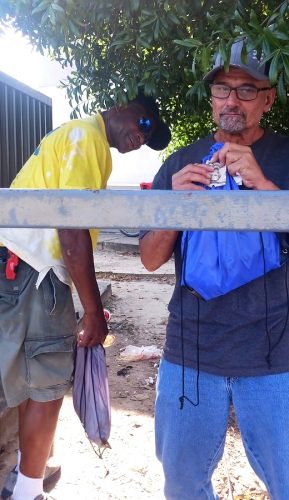
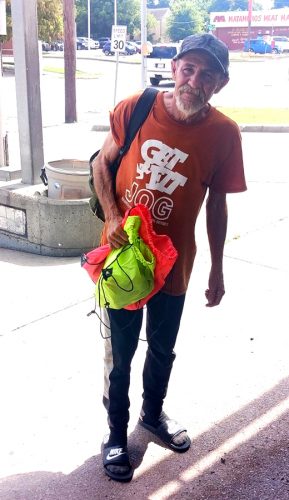
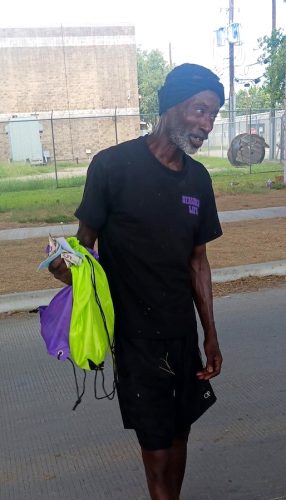
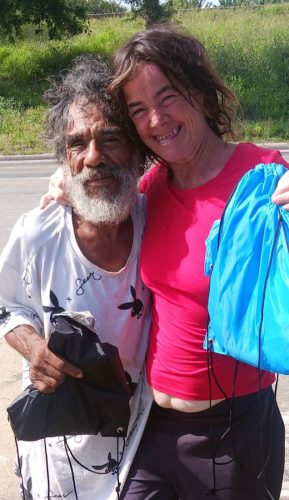
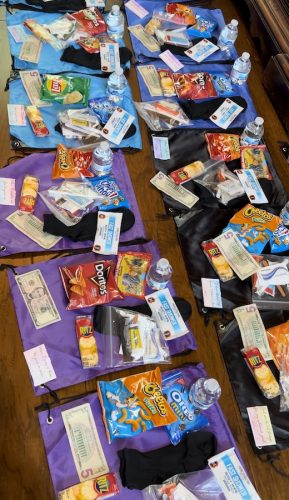
Goals and Objectives
➔ Reduce Poverty: Help reduce the poverty rate in Houston, Austin, San Antonio and Dallas by providing essential resources and support to low-income individuals and families.
➔ Empower communities: Empower residents to become self-sufficient through education, job training, and access to resources.
➔ Improve health and well-being: Improve the overall health and well-being of program participants by improving access to health care and nutrition.
Impact
To assess the program’s effectiveness, the following metrics can be tracked:
Number of Individuals Served Each Year: This metric measures the total number of individuals and families who receive assistance and support from the Helping Hands Program annually in the Texas cities of Houston, Austin, San Antonio, and Dallas.
Number of Community Partner Organizations Each Year: This metric tracks the growth of the program’s network of community partner organizations. It measures the number of new organizations that collaborate with the program each year to expand the range of services and support available to the community.
Partnerships
These are some general categories of potential partners you can explore for your program. You will need to conduct research and contact specific entities within these categories in your local area to identify suitable partners. Below are some possible types of partners:
Individual Donors: Engage with individuals in your community who are passionate about your cause. Organize fundraising events and donation drives.
Media Outlets: Collaborate with local newspapers, TV stations, and radio stations to raise awareness about your program and events.
Community Groups and Associations: Neighborhood associations, business associations, and civic groups can provide support and resources.
Local Nonprofit Organizations:
Homelessness shelters
Elderly care facilities
Food banks and meal programs
Counseling and mental health organizations
Job placement and workforce development agencies
Community development organizations
Local Businesses:
Restaurants and grocery stores for meal donations
Retail stores for in-kind donations of essential supplies
Healthcare providers for medical care support
Corporations for financial sponsorship
Construction companies for housing initiatives